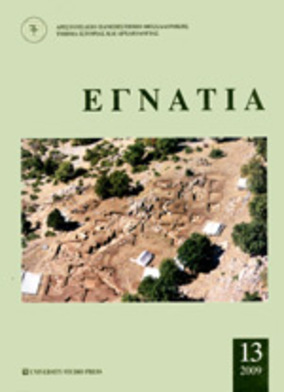Το πρόβλημα της εθνικής συνέχειας στην ελληνική και τουρκική ιστοριογραφία : Κωνσταντίνος Παπαρρηγόπουλος και Μεχμέτ Φουάτ Κιοπρουλού
Part of : Εγνατία ; No.15, 2011, pages 127-136
Issue:
Pages:
127-136
Parallel Title:
The problem ofthe national continuity in the Greek and Turkish historiography
Section Title:
Ιστορία
Author:
Abstract:
As regards the issue ofthe creation of a national identity, Greek and Turkish historiographyhave evolved in a similar though not parallel fashion, with the difference of a century. Incontrast with other comparable historiographies in the Balkans that proceeded ab initio toidealize the medieval past, the national movement that opened, and the national movementthat brought to a close the intricate movements involved in the establishment of nation statesin this region relied on a fundamental rejection ofthe Byzantine (Greece) and Ottoman (Turkey)middle ages. However, the requirements for national fulfilment, both temporal and spatial,imposed the re-incorporation ofthis “lost link” needed for the framing ofthe great narrativeof national continuity. Konstantinos Paparrigopoulos and Mehmed Fuad Köprülü representthis crucial moment in the development ofGreek and Turkish historiography: the momentofthe appropriation ofthe “dark ages” by the predominant national narrative, whichthe initial elaborations ofradical nationalists had rejected. The differences between these twohistoriographic undertakings are easily explained as a result ofthe temporal distance separatingthem. But here we will primarily emphasize their striking similarities, which are connectednot so much with a generally widespread view about the cultural apperception oftheconcept of “nation” in works by “national-romantic” historians as with what it takes to be itstheoretical presupposition: the methodological dissociation ofthose elements that the primordial approach considered part and parcel ofnational identity, and above all, race and language.
Subject:
Subject (LC):




